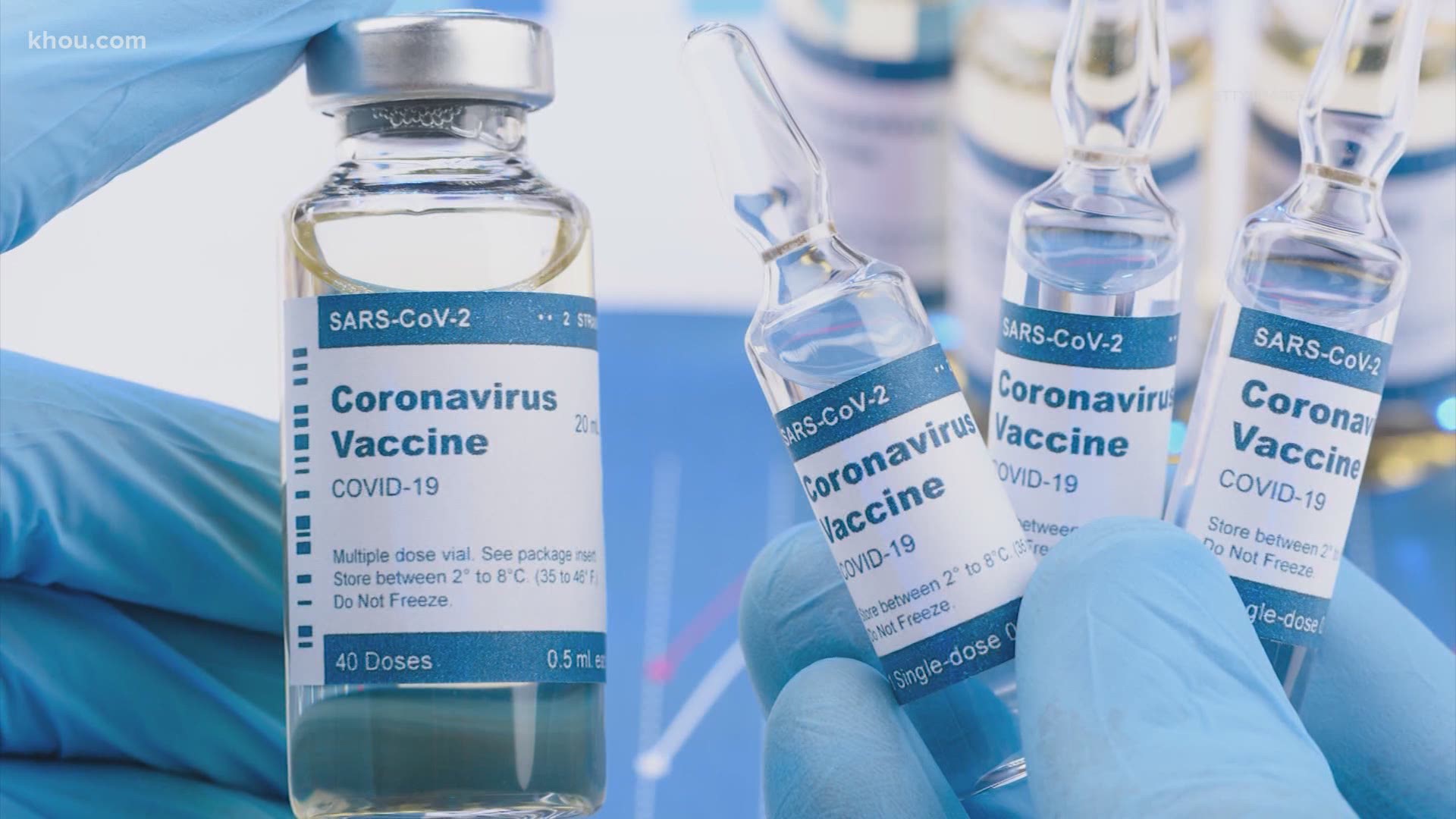AUSTIN, Texas — There are 29 million people living in Texas. Making sure that everyone who wants a COVID-19 vaccine has access to it is complicated.
“The vaccine is going to be in limited supply just as manufacturing ramps up,” Chris Van Deusen said.
Van Deusen is the Director of Media Relations for the Texas Department of State Health Services.
“For that first push, (we will) be targeting people who are in the health care professions who need to be immunized because of their work and working with large hospitals, large clinics, because they'll have the capacity to immunize a larger number of people,” he said.
Van Deusen said vaccine distribution requires many voices. The state put together the COVID-19 Expert Vaccine Allocation Panel that consists of 17 people, including infectious disease experts, emergency management gurus, public health and political leaders.
The panel met for the first time Monday. Eventually, it will be making recommendations to the DSHS commissioner.
“They will help sort of 'prioritize' the vaccine distribution in Texas throughout those different phases of the vaccine distribution,” Van Deusen said.
How many doses will Texas get? The exact number is not yet clear. According to Van Deusen, based on the population, Texas typically gets 10% of the nation’s vaccine supply.
“What we expect is the CDC will come and say, ‘OK, Texas, here are the number of doses you're going to get this week,’ then the allocation panel will look at that and determine, 'OK, where are the best places for that vaccine to go? We'll let the CDC know and then it'll be shipped out directly to those sites,'” Van Deusen said.
Van Deusen said health providers have to be signed up with the state to be able to administer the COVID-19 vaccine. So far, more than 2,500 have signed up, but more are needed.
“Want to make sure, geographically, we're covering the state and have different kinds of providers as well,” he said.
“That's just another pathway to get people in Texas immunized,” he said.
The goal is for Texans to be able to get vaccinated where they usually get health care. We’re not very close to that but when it finally happens, Van Deusen said providers will let you know.

